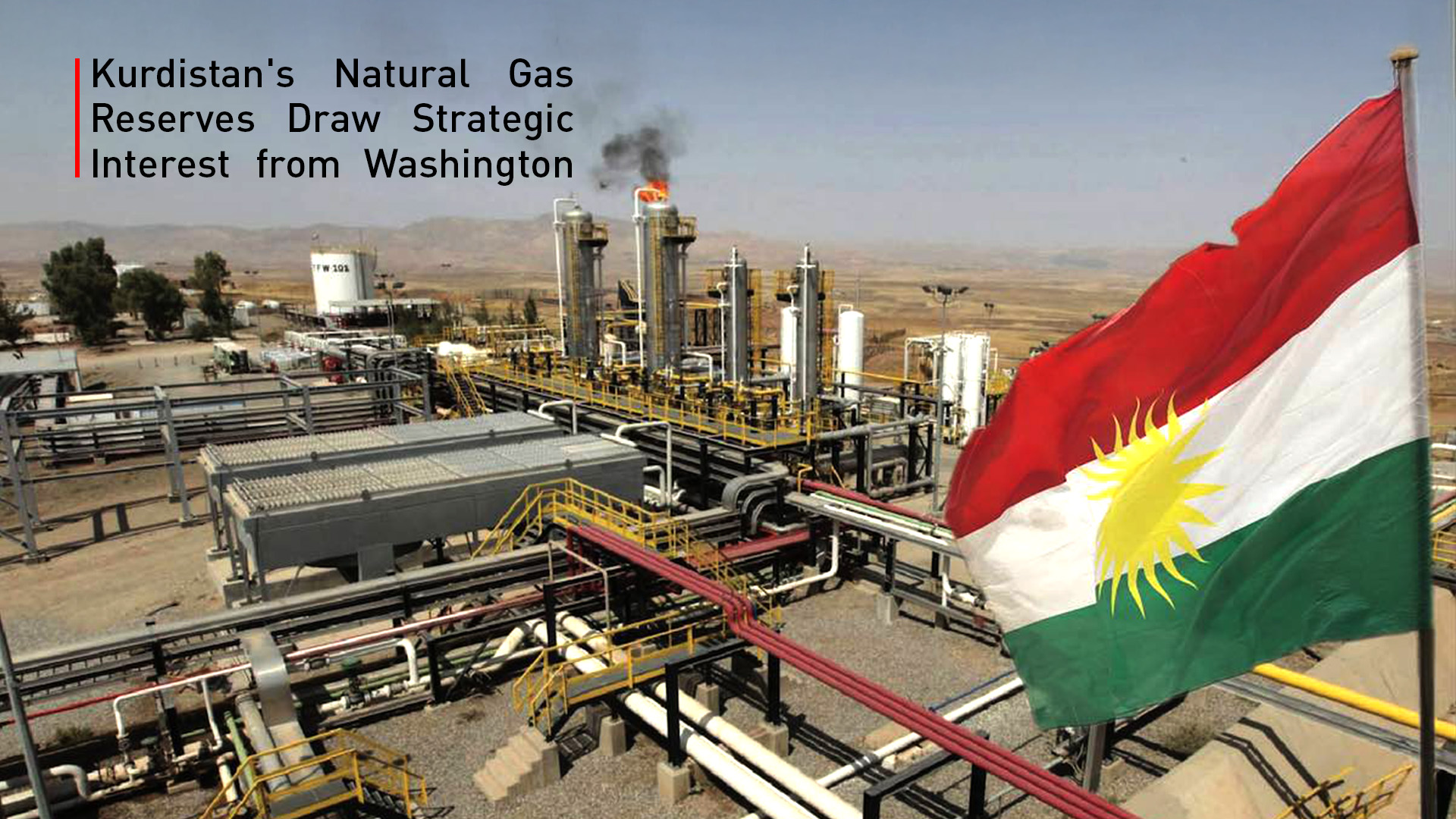Kurdistan's Natural Gas Reserves Draw Strategic Interest from Washington
Washington shows strategic interest in Kurdistan’s natural gas reserves, estimated at 200 trillion cubic feet. Experts emphasize its potential to supply Iraq and position the region as an energy hub.

Erbil (Kurdistan24) – A panel of researchers and energy specialists in Washington that was organized by Global Kurdish Initiative for Peace at the School of International Service, American University, underscored the growing geopolitical and economic significance of the Kurdistan Region’s natural gas reserves, describing them as a potential cornerstone for Iraq’s energy future and a critical opportunity for international cooperation.
Speaking to Kurdistan24, Dr. Yerevan Saeed, director of the Global Kurdish Initiative for Peace, explained that the Washington event was designed to shed light on both the opportunities and challenges that lie ahead for the Kurdistan Region. “The primary objective of this event was to place emphasis on the pressing challenges and structural factors that determine whether Kurdistan can truly become the owner of its natural gas resources and transform them into a powerful strategic asset,” he said.
According to the latest figures from the Kurdistan Regional Government’s Ministry of Natural Resources, the Region holds an estimated 200 trillion cubic feet of proven gas reserves, representing nearly 30 percent of the world’s total. Dana Gas, the leading producer in the Kurdistan Region, announced in its latest monthly report that its daily production has now reached 500 million cubic feet.
Raad Alkadiri, an energy security researcher, told Kurdistan24 that natural gas from the Kurdistan Region could play a pivotal role not only in supplying Iraq but also in positioning the country as a regional hub. “Iraq is a nation abundantly rich in resources, yet much of its potential remains untapped. Politics and security have long overshadowed the sector, but the reality is that Kurdistan can meet domestic demand and eventually become a key transit point for Europe and other markets. This is an opportunity both for Kurdistan and for Iraq as a whole,” he stated.
Yet, these opportunities have not been without obstacles. In 2023, several of the Kurdistan Region’s gas fields came under attack by militias using rockets and drones. The strikes temporarily disrupted expansion plans, particularly at the Khor Mor field, one of the largest projects under development. Despite these attacks, U.S. officials continue to describe the sector as a critical priority, and international companies have pressed forward with their operations across multiple sites.
Noam Raydan, a researcher at the Washington Conference for the Near East, confirmed to Kurdistan24 that such assaults have had measurable consequences. “We have seen repeated attacks on Khor Mor in 2023, and it is undeniable that these incidents affect the pace of expansion and create long-term challenges for development plans. But they cannot fully halt production. At most, they delay operations, especially if armed groups are not held accountable and effectively restrained,” she warned.
Victoria Tyler, director of Iraq’s Initiative within the Middle East Program at the Atlantic Community, emphasized Washington’s strategic view of the Kurdistan Region’s natural gas sector. “The United States sees the Kurdistan Region’s natural gas as a vital opportunity for American engagement. We observed this clearly during Prime Minister Masrour Barzani’s recent visit to Washington, where an agreement was signed between Western Zagros and HKN Energy in coordination with the Kurdistan Regional Government. In my view, this opens the door for greater participation by American companies,” she told Kurdistan24.
Tyler added that the key lies in good-faith negotiations. “What is crucial is that the Kurdistan Regional Government approaches agreements with constructive intent, ensures transparency in the contracts, and demonstrates commitment to honoring them. Only then can the deals gain greater international traction,” she stressed.
The Kurdistan Region today possesses nine gas fields, including five dry gas fields and four associated gas fields linked to oil production. The total volume of reserves has been estimated at 5.67 trillion cubic meters. These figures, coupled with the region’s strategic location, place Kurdistan in a position to become a central player in global energy markets if political and security challenges are managed effectively.
A Milestone in U.S.-Kurdistan Relations
This momentum was further underscored on May 20, 2025, when under the supervision of Kurdistan Region Prime Minister Masrour Barzani, two historic multi-billion-dollar energy agreements were signed in Washington, D.C. between the Kurdistan Regional Government’s Ministry of Natural Resources and American companies HKN Energy and WesternZagros.
The deals, valued at tens of billions of dollars, were hailed by PM Barzani as the beginning of a “new phase” in Kurdistan-U.S. relations. “These agreements will power millions, create jobs, and strengthen the foundation of Kurdistan’s economy,” he declared in remarks shared on X. Signed at the U.S. Chamber of Commerce, the agreements drew the participation of senior American officials, including Steve Lutes, vice president of Middle East Affairs at the Chamber, who congratulated the Kurdistan delegation.
A new phase of Kurdistan-USA ties begins as we sign two multi-billion dollar deals with HKN Energy and WesternZagros Resources.
— Masrour Barzani (@masrourbarzani) May 20, 2025
These deals will power millions, create jobs and strengthen the foundation of Kurdistan’s economy. pic.twitter.com/v1WYeXybiU
The contracts target the development of the Miran and Topkhana fields, estimated to hold a combined market value of $110 billion. Acting Minister of Natural Resources Kamal Mohammed explained that the projects would directly address the Kurdistan Region’s electricity shortfalls, reduce reliance on imported fuels, and provide a surplus that could eventually be exported regionally. “This is not just about powering homes. It is about fueling our industries and building an economy rooted in local resources,” he emphasized.
At a time when oil exports to Baghdad remain mired in disputes, these agreements symbolize not only economic progress but also a political shift, anchoring the Kurdistan Region as a reliable partner for U.S. investment and strategic cooperation. As Prime Minister Barzani concluded in Washington, “This is a great achievement—for Kurdistan, for Iraq, and for our American partners. It marks the dawn of a new era.”